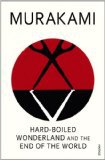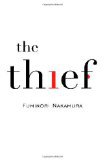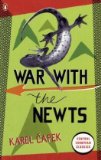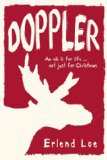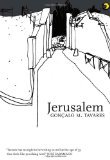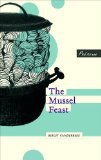 Translated from the German by Jamie Bulloch
Translated from the German by Jamie Bulloch
Five words from the blurb: German, family, issues, revolutions, understand
Beside the Sea is one of my favourite books, but I’ve had less success with other Peirene releases. A few weeks ago Meike, the founder of Peirene Press, assured me that The Mussel Feast would be to my taste, so I decided to accept a review copy. She was right – this is a fantastic book and the ending is particularly good.
The Mussel Feast is a 112 page monologue narrated by a daughter as she waits for her father to return home for dinner. The father is expected to receive a promotion so the family cooks a large pot of mussels to celebrate. A wonderful sense of foreboding mounts as the father is increasingly late; mirroring Beside the Sea in the way an ordinary situation slowly becomes unbearably tense.
She opened the wine and we felt terribly insubordinate. We sat around the dead mussels as if part of some conspiracy and drank father’s second best wine without him, gradually realizing that the mood had been spoiled for all of us.
The book is set in Germany and was written shortly before the fall of the Berlin Wall. The repressed state that they live in is revealed over the course of the book, perfectly capturing what life is like for a family living under the power of a tyrannical father.
The writing was gripping, despite the meandering narrative, and the lack of chapter/page breaks encourages the reader to complete the book in a single sitting, giving the book maximum impact.
This is a wonderful little book and I’m sure that a second reading would reveal even more depth. Recommended to anyone interested in thought-provoking international literature.

.
The thoughts of other bloggers:
For a book so troubled in tone, I found it to be funny and inventive, and with surprising flashes of relatability to familiar aspects of family life… Tolstoy is My Cat
The style is curiously hypnotic… Book Word
…a work which is surprisingly powerful and layered for its size. Tony’s Reading List

